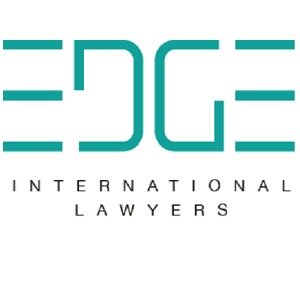Best Nonprofit & Charitable Organizations Lawyers in Porto
Share your needs with us, get contacted by law firms.
Free. Takes 2 min.
List of the best lawyers in Porto, Portugal
About Nonprofit & Charitable Organizations Law in Porto, Portugal
Nonprofit and charitable organizations in Porto, Portugal, are pivotal to the community, addressing various social, cultural, and environmental needs. The framework for these organizations is designed to ensure they operate effectively, transparently, and in alignment with their stated mission. Several types of entities, such as associations, foundations, and cooperatives, fall under this category, each with specific legal and regulatory requirements. Operating a nonprofit involves complying with statutory obligations, fundraising regulations, financial reporting, and governance structures laid out by Portuguese law.
Why You May Need a Lawyer
There are numerous scenarios where legal assistance may be crucial for those involved with nonprofit and charitable organizations. Whether you are starting a new nonprofit, managing compliance issues, or handling disputes, a lawyer specialized in nonprofit law can be invaluable. Common situations include forming a new nonprofit, drafting bylaws or operational policies, navigating tax exemptions and obligations, addressing employment or contractual issues, and managing regulatory compliance. Additionally, lawyers can assist with grant applications and intellectual property related to branding and marketing efforts.
Local Laws Overview
In Porto, nonprofit and charitable organizations must adhere to several laws and regulations outlined in the Portuguese Civil Code and other related statutes. Key legal aspects include:
- Registration: Nonprofits must register with the national registry and meet specific requirements related to their legal status, such as forming an association or foundation.
- Taxation: Nonprofits may benefit from tax exemptions but need to comply with reporting obligations to maintain this status.
- Governance: Organizations are required to establish governing bodies, like boards of directors, with clearly defined roles and responsibilities.
- Reporting: Annual financial reports are mandatory, ensuring transparency and accountability.
- Fundraising: Fundraising activities are regulated to prevent fraud and ensure funds are used for the stated charitable purposes.
Frequently Asked Questions
What is the process for establishing a nonprofit in Porto?
Setting up a nonprofit involves drafting articles of association, choosing a legal structure, registering with the local authorities, and gaining proper certifications to operate legally.
Are there any tax benefits for nonprofit organizations?
Yes, nonprofits in Portugal may be eligible for exemptions from certain taxes, such as corporate income tax, depending on their purpose and activities.
Can a nonprofit in Porto generate revenue?
Nonprofits can generate revenue through activities aligned with their mission, but profits should be reinvested into the organization rather than distributed to members.
How are donations to charities treated for tax purposes?
Donations to charities registered under public interest status may be eligible for tax deductions for donors.
What reporting requirements are there for nonprofits?
Nonprofits must provide annual financial statements and reports to demonstrate fiscal responsibility and compliance with applicable regulations.
How can nonprofits ensure compliance with fundraising regulations?
Organizations should adhere to specified guidelines, maintain transparency with fund allocation, and only engage in authorized fundraising activities.
Are there restrictions on political activities for nonprofits?
Nonprofits can partake in advocacy but must avoid direct political campaign involvement to maintain their exempt status.
What employment laws apply to nonprofit organizations?
Nonprofits must comply with labor laws governing staff contracts, wages, benefits, and workplace rights equivalent to for-profit entities.
What should be included in the bylaws of a nonprofit?
Bylaws typically outline the organization's purpose, governance structure, roles of directors, meeting protocols, and other operational guidelines.
How are disputes within a nonprofit usually resolved?
Disputes are often resolved by internal mediation processes, though more significant issues may require legal action or external arbitration.
Additional Resources
For those needing further assistance or more information, consider reaching out to:
- Institute for the Support of Small and Medium Enterprises and Innovation (IAPMEI)
- Ministry of Labor, Solidarity, and Social Security
- Portuguese Charity Law guidance resources
- Local legal aid clinics or nonprofit legal specialists
Next Steps
If you are seeking legal assistance for a nonprofit or charitable organization in Porto, consider the following:
- Seek recommendations for lawyers specializing in nonprofit law from local professional associations or through online directories.
- Prepare a summary of your needs and specific issues to address during initial consultations.
- Evaluate the lawyer’s experience with similar organizations and their understanding of local and national regulations affecting nonprofits.
Taking these steps can help ensure that you find the right legal support to guide you through the complexities of nonprofit management effectively.
Lawzana helps you find the best lawyers and law firms in Porto through a curated and pre-screened list of qualified legal professionals. Our platform offers rankings and detailed profiles of attorneys and law firms, allowing you to compare based on practice areas, including Nonprofit & Charitable Organizations, experience, and client feedback.
Each profile includes a description of the firm's areas of practice, client reviews, team members and partners, year of establishment, spoken languages, office locations, contact information, social media presence, and any published articles or resources. Most firms on our platform speak English and are experienced in both local and international legal matters.
Get a quote from top-rated law firms in Porto, Portugal — quickly, securely, and without unnecessary hassle.
Disclaimer:
The information provided on this page is for general informational purposes only and does not constitute legal advice. While we strive to ensure the accuracy and relevance of the content, legal information may change over time, and interpretations of the law can vary. You should always consult with a qualified legal professional for advice specific to your situation.
We disclaim all liability for actions taken or not taken based on the content of this page. If you believe any information is incorrect or outdated, please contact us, and we will review and update it where appropriate.








